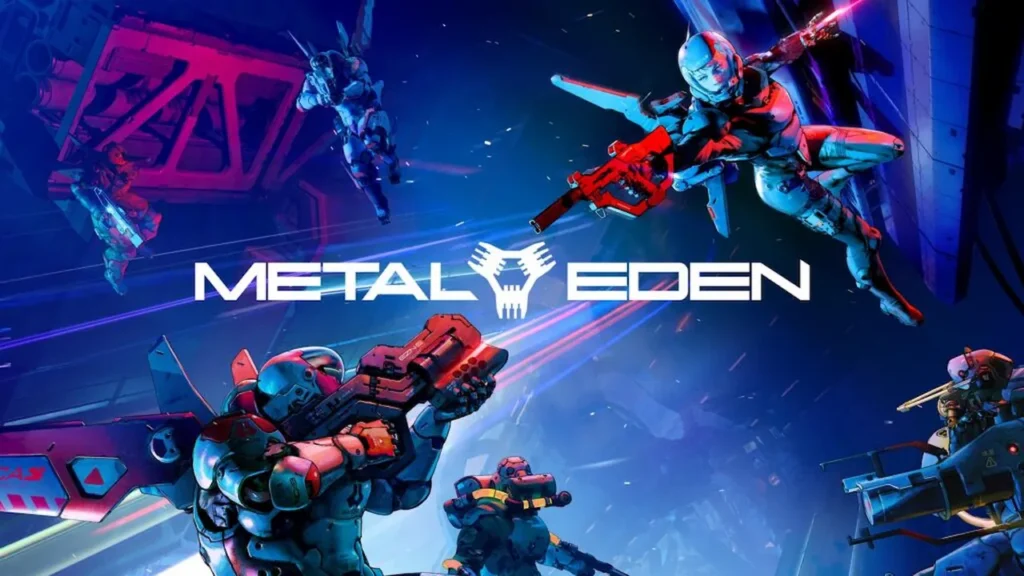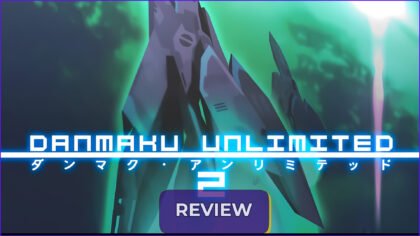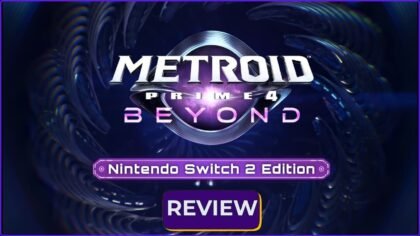| Title | Metal Eden |
| Released | Sept 2, 2025 |
| Developer | Reikon Games |
| Publisher | Deep Silver |
| Platform | |
| Genre | FPS, Action, Movement Shooter |
| Rating | M |
| Pricing | $39.99 |
| Proton | Experimental |
Completed on PC on Normal
HowLongToBeat Time: Main + Sides (6 Hours) | My Clear Time: 5hrs (Main + Extras)
Full disclosure: Review key provided by Reikon Games.
Edit: New Game+ was added as of 10/15/2025
Metal Eden Background
Metal Eden, the new entry from Ruiner’s Reikon Games published by Deep Silver, is a cyberpunk-themed first-person shooter emphasizing movement within the Ruiner universe. Originally scheduled for release on May 6th, 2025, it was delayed following feedback from the April 17th demo to fine-tune the experience and address areas needing improvement, with the team confident that the extra time would pay off.
Drawing inspiration from Doom 2016, Ghost in the Shell, Neon Genesis Evangelion, Titanfall, and more, as noted in an interview with TechRadar, Metal Eden is helmed by former CD Projekt Red staff and released September 2, 2025, on Xbox Series, PC, and PS5.
The development team for Metal Eden includes:
- Benedykt Szneider (Writer/Narrative Director): Ruiner, Metal Eden
- Karol Wieczorkiewicz (Director): Ruiner
- Jakub Styliński (Director): Witcher, Witcher 2: Assassin of Kings, Ruiner
- Wojciech Wiśniewski, Frederico Carneiro (Lead Character Artist, Lead Weapon / Environmental Artist):
- Wojciech: Shadow Warrior 2
- Frederico: Metal Eden
- Sascha Dikiciyan, Wiolation (Composers):
- Sascha (Sonic Mayhem): Deus Ex: Mankind Divided, Quake II, Prototype
- Wioleta Wnorowska (Wiolation): Metal Eden
- Adam Guzy (Lead Producer): Sniper: Ghost Warrior – Contracts, Sniper: Ghost Warrior – Contracts 2
Metal Eden Experience
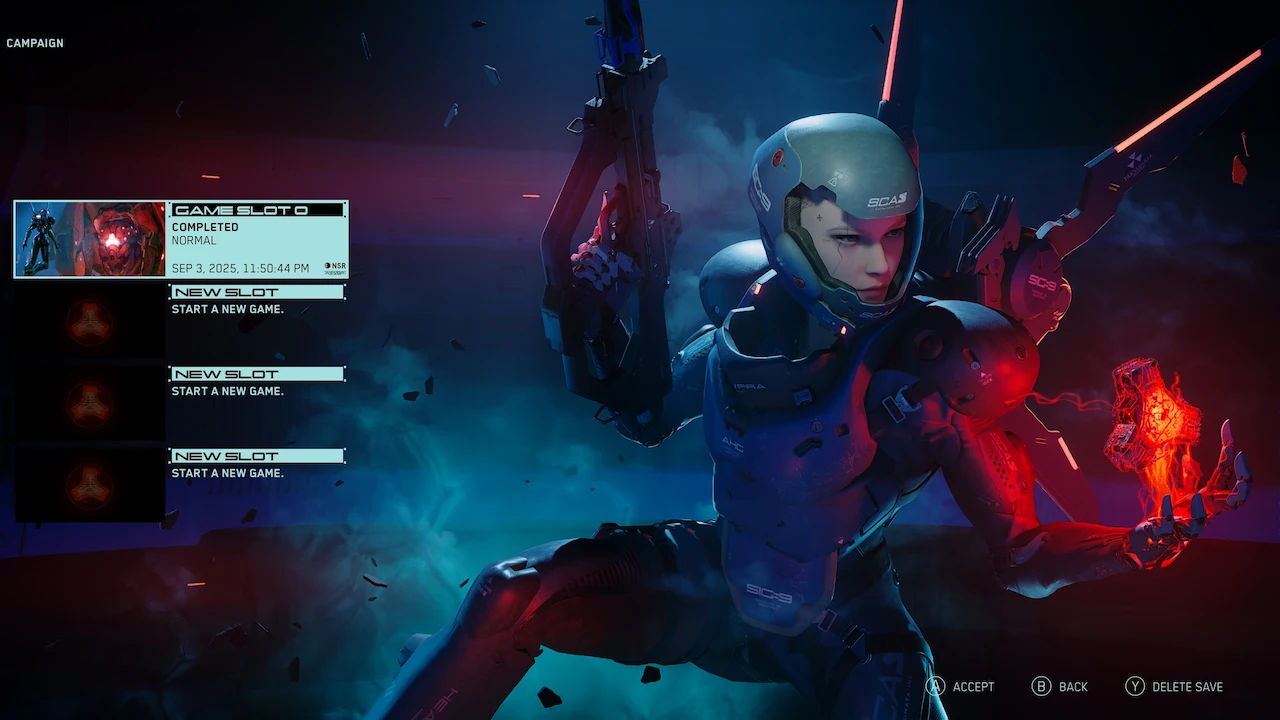
Slot 1 shows ASKA has conquered the challenges of Metal Eden.
My experience with first-person shooters spans decades, from Doom on SNES to Doom Eternal, Duke Nukem 3D, Titanfall, Syndicate, Quake, and Unreal Championship. Having played Ruiner at launch, I was already familiar with the universe, which made stepping into Metal Eden especially exciting.
Experiencing the world from a first-person perspective adds immersion, and knowing that Sonic Mayhem was behind the soundtrack, having worked on Deus Ex and other favorites, heightened my anticipation.
Metal Eden Impressions
Introduction
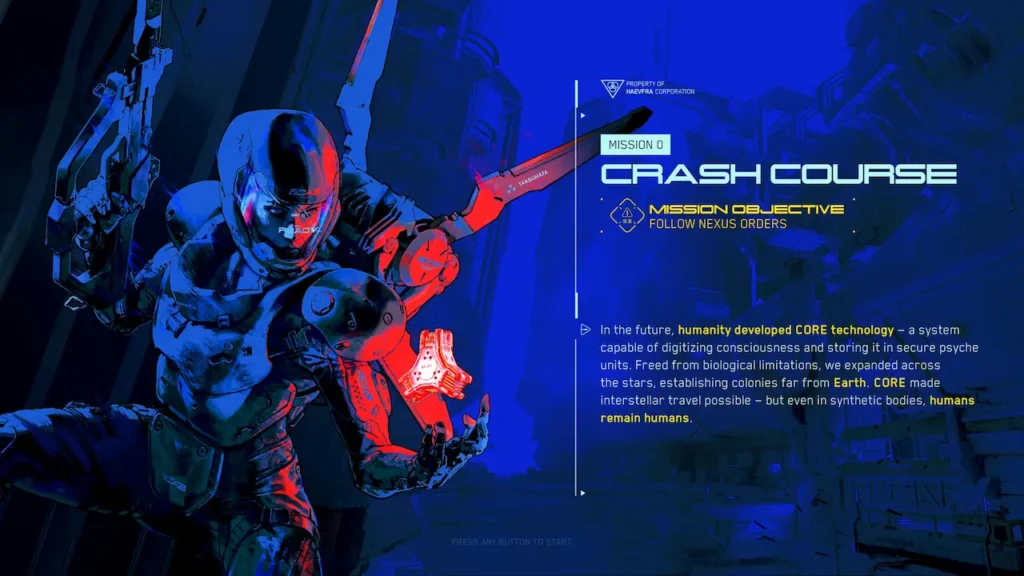
Crash Course sets ASKA on a path through the CORE-powered future.
Metal Eden immediately feels like a high-octane evolution of arena shooters. The game rewards aggressive movement, precise aim, and quick thinking, with combat arenas designed to constantly challenge and excite. From the opening moments, the fluidity of ASKA’s movement, weapon responsiveness, and vertical arenas make it clear this isn’t a slow shooter, it’s a power fantasy celebrating speed, strategy, and spectacle.
Even in quieter moments, Metal Eden’s neon-lit vistas, weathered buildings, and mechanical adversaries create a rich, immersive backdrop. Responsive combat combined with atmospheric design makes each level feel intentional, rewarding, and full of energy.
Gameplay & Mechanics
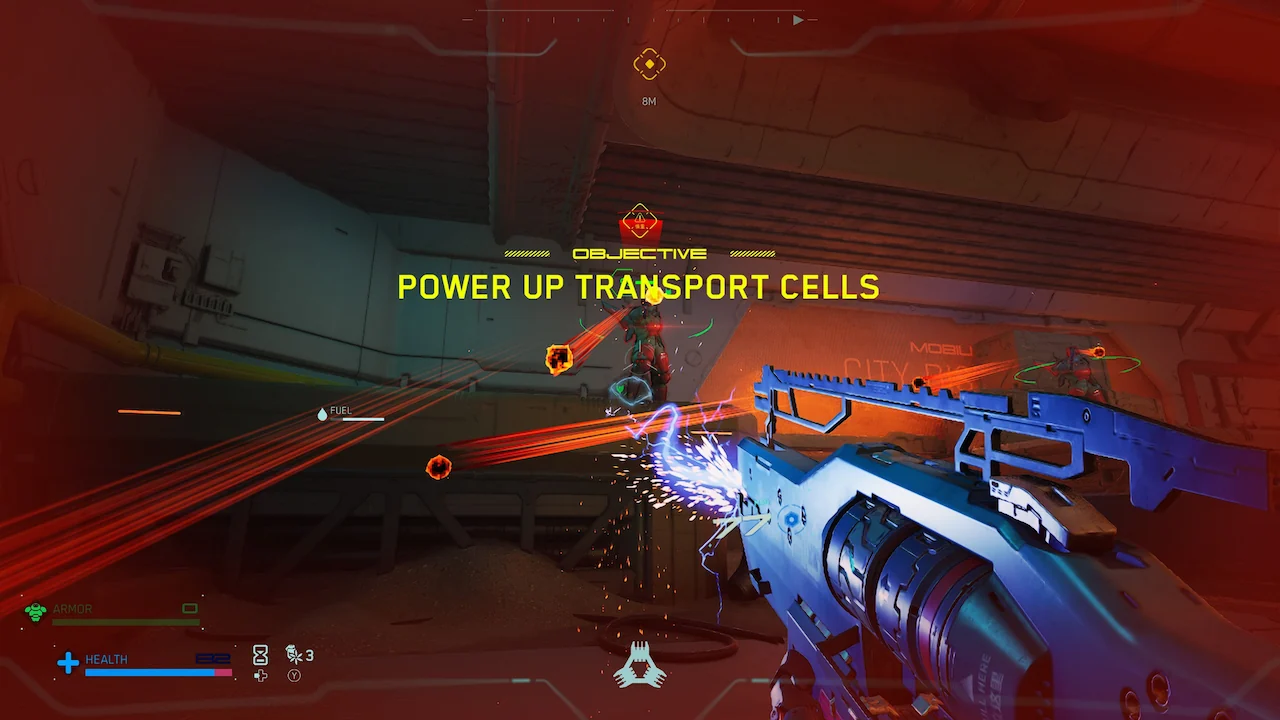
Dashing and shooting while advancing through the objective.
Movement
Movement is the backbone of Metal Eden. ASKA’s high baseline speed echoes Quake. Wall running flows naturally into gunplay, making encounters cinematic while giving the agility to survive swarms.
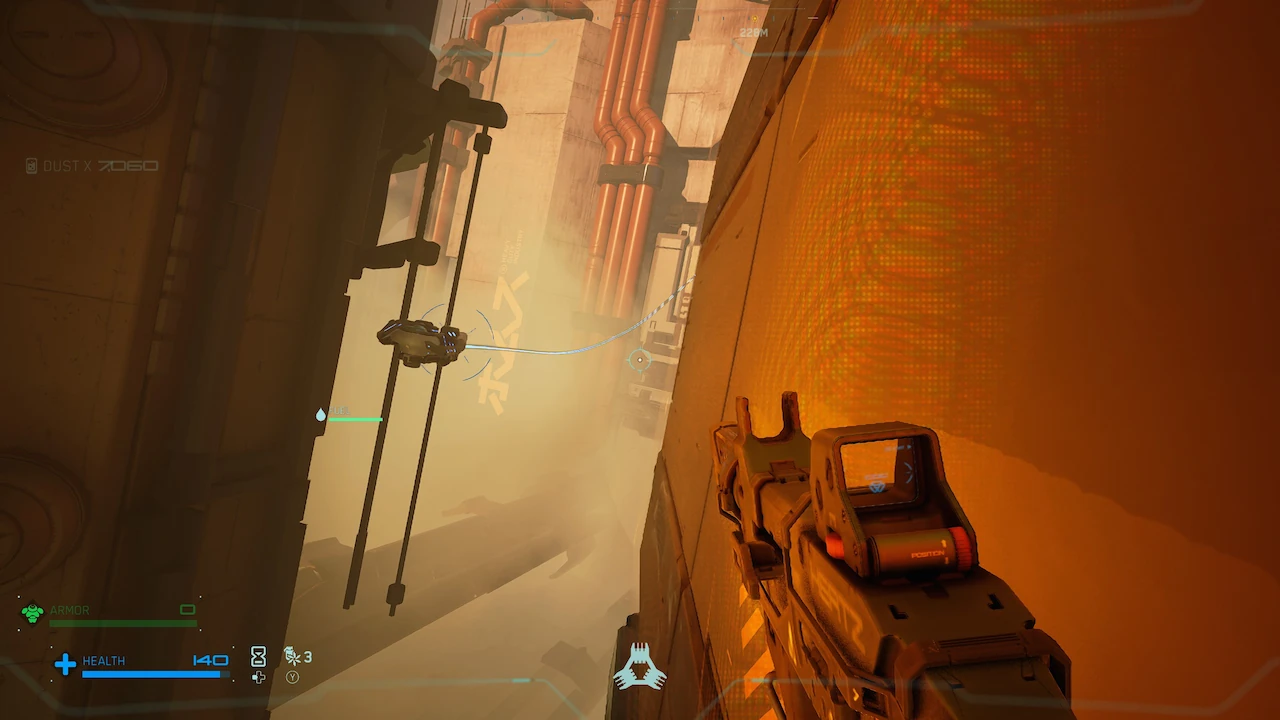
Wall running across futuristic open-air structures at full speed.
Wall Running
Far from a gimmick, wall running is central to design. Vertical arenas and enemy types encourage staying off the ground.
Map Design
Levels are a mix of mostly linear areas that eventually turn into action platforming sections requiring precise movement utilizing the wall running and jump placement from hovering, until hitting a combat arena where the game is at its most Quake.
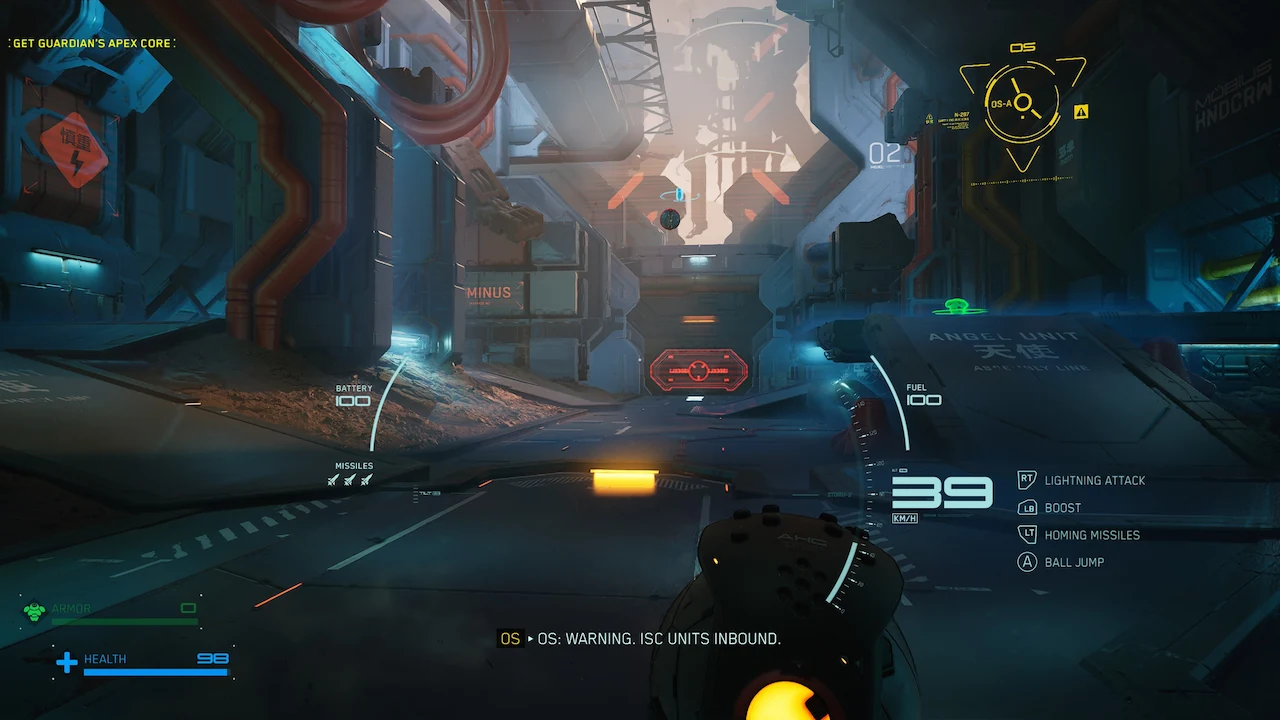
This arena shows off Metal Eden’s verticality and strategic design.
Arena Design
Combat arenas bring both horizontal and vertical play, feeling like mini-sections of Unreal Championship where you fight enemies and turn the environment into another weapon. They include arena shooter pickups such as health, armor, and ammo that respawn on timers, while enemy placement makes wall-running a tactical centerpiece in frantic firefights.
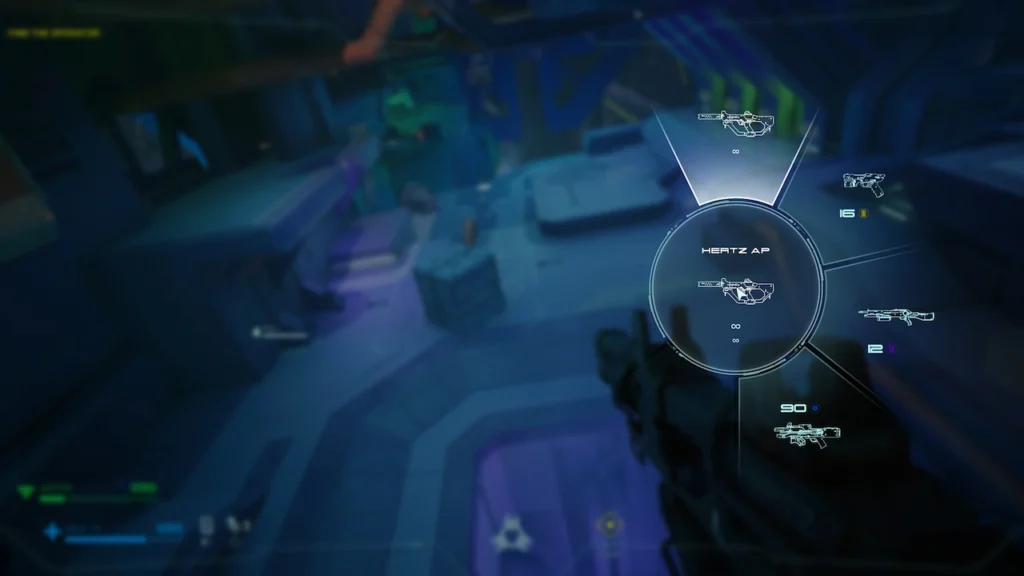
The radial weapon menu lets ASKA switch on the fly for high-speed combat.
Combat
Combat is layered, expanding as you unlock new weapons, grenades, and skill tree abilities. The game pushes you to mix movement, melee, and ranged attacks to keep encounters varied. Weapons use a radial menu and can be swapped quickly between your current and previous choice.
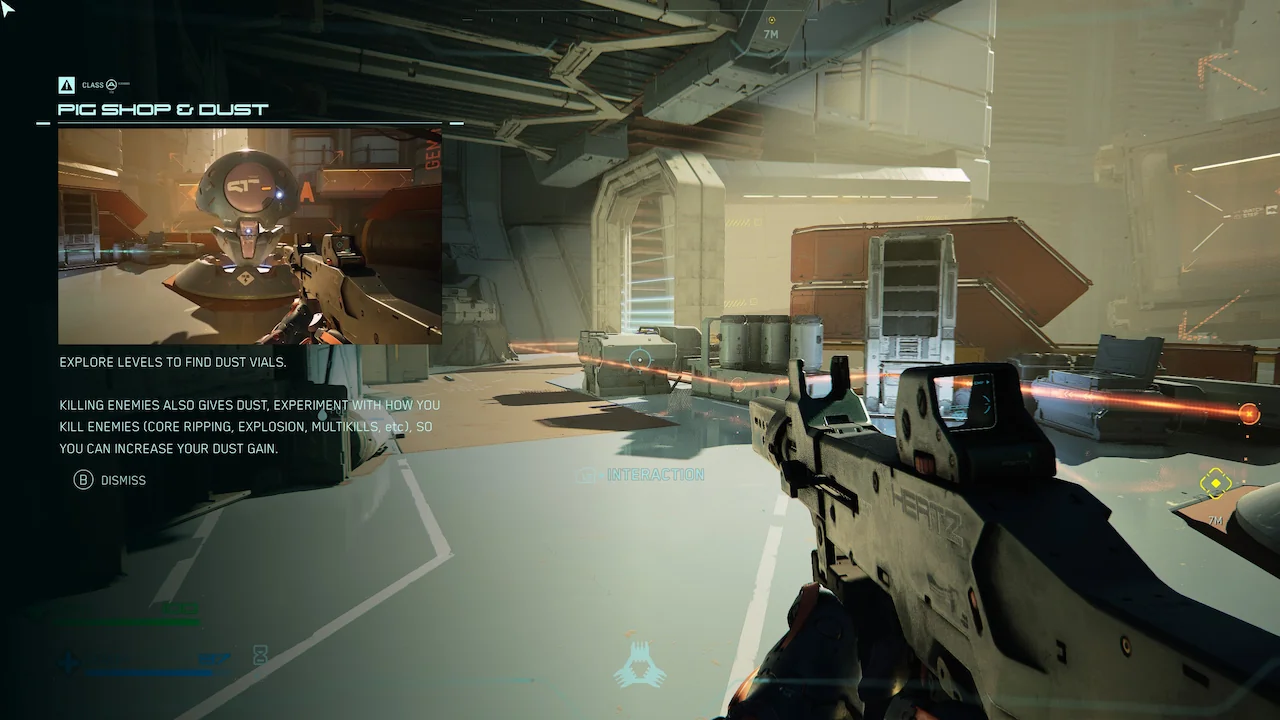
Defeat enemies to earn Dust and unlock new weapon options in the PIG Shop.
Weapon Shop
Shops let you spend Dust to enhance your arsenal. Alternate fire modes unlocked through challenges can be swapped in at these locations, encouraging experimentation.
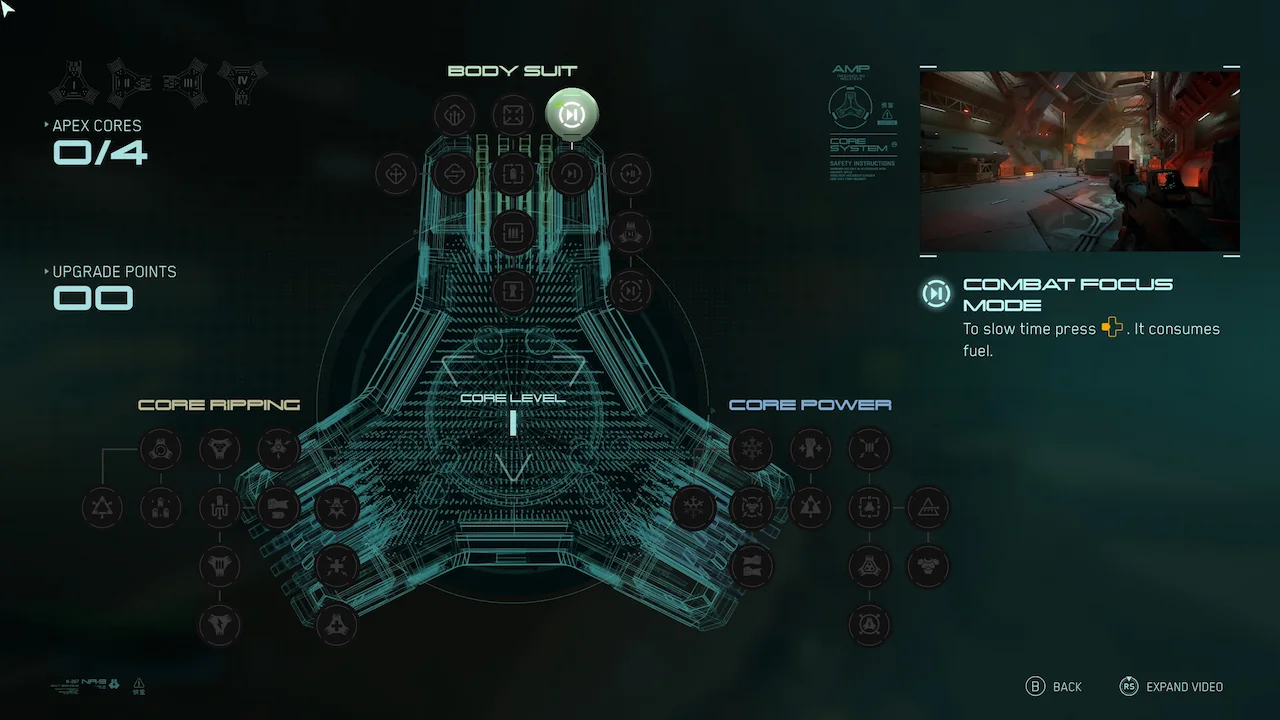
Skill trees in Metal Eden let you tweak abilities and gain tactical advantages.
Skill Trees
From cooldown reductions to boosted dashes, slow-motion, and charged melee strikes, skill trees add tactical depth to dynamic encounters.
Art & Audio
Visually, the game leans into neon-soaked cyberpunk aesthetics with sharply designed characters and mechanical enemies. Neon lights pierce the architecture, lava illuminates corridors, and weathered buildings tell the story of a world that once was. Some of the most enjoyable moments come from simply riding a zipline and taking in the vistas, letting the world breathe.
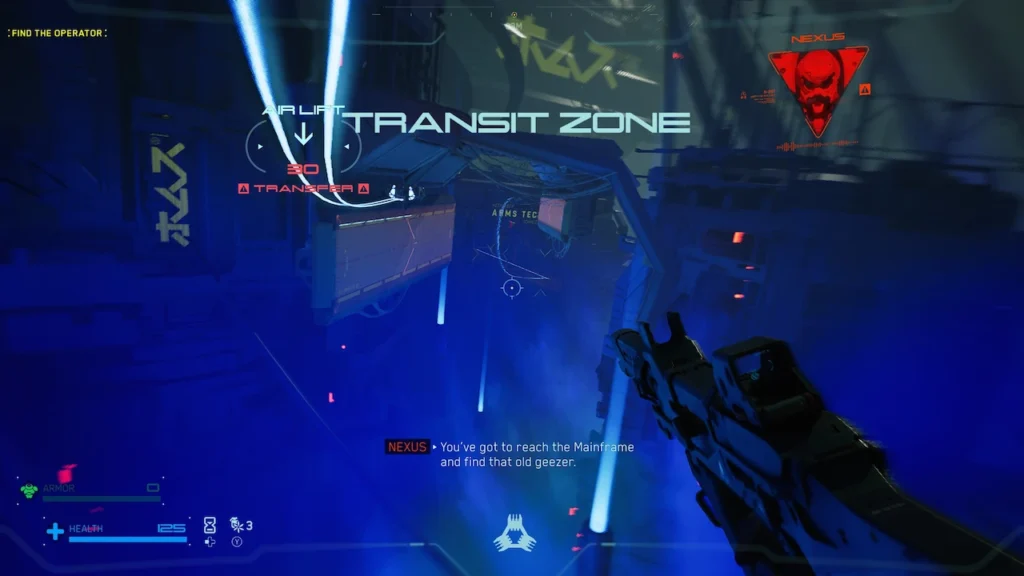
Metal Eden’s open-world visuals shine as ASKA ziplines through vibrant environments.
Audio complements the design. Every gunshot, punch, breath, and wall run lands with impact. Ambient tracks provide calm between intense firefights, balancing pulse-pounding moments with cathartic ambience. Key composers Sonic Mayhem and Wioleta Wnorowska bring the world to life with their music. Sonic Mayhem even shared a behind-the-scenes video showing the industrial tones and layered ambience that shape the soundscape.
Unique Features & Mechanics
Metal Eden innovates with mechanics that amplify its cyberpunk FPS core.
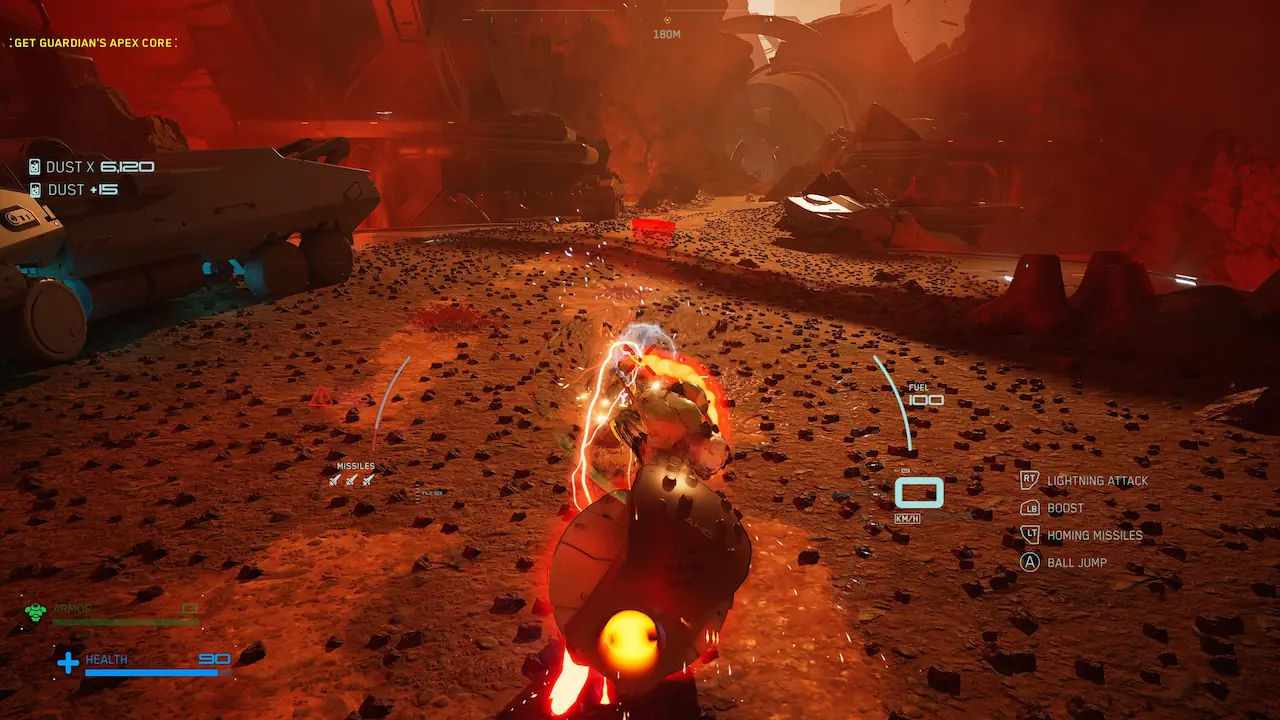
Metal Eden’s Ball Mode lets ASKA unleash lightning attacks and traverse hostile terrain with style.
Ball Mode
In select areas, ASKA transforms into Ball Mode, reducing her hitbox and unlocking a combat toolkit. Boost dashes, homing missiles, and a lightning arc attack add traversal and offensive options, drawing comparisons to Metroid Prime with a more aggressive spin.
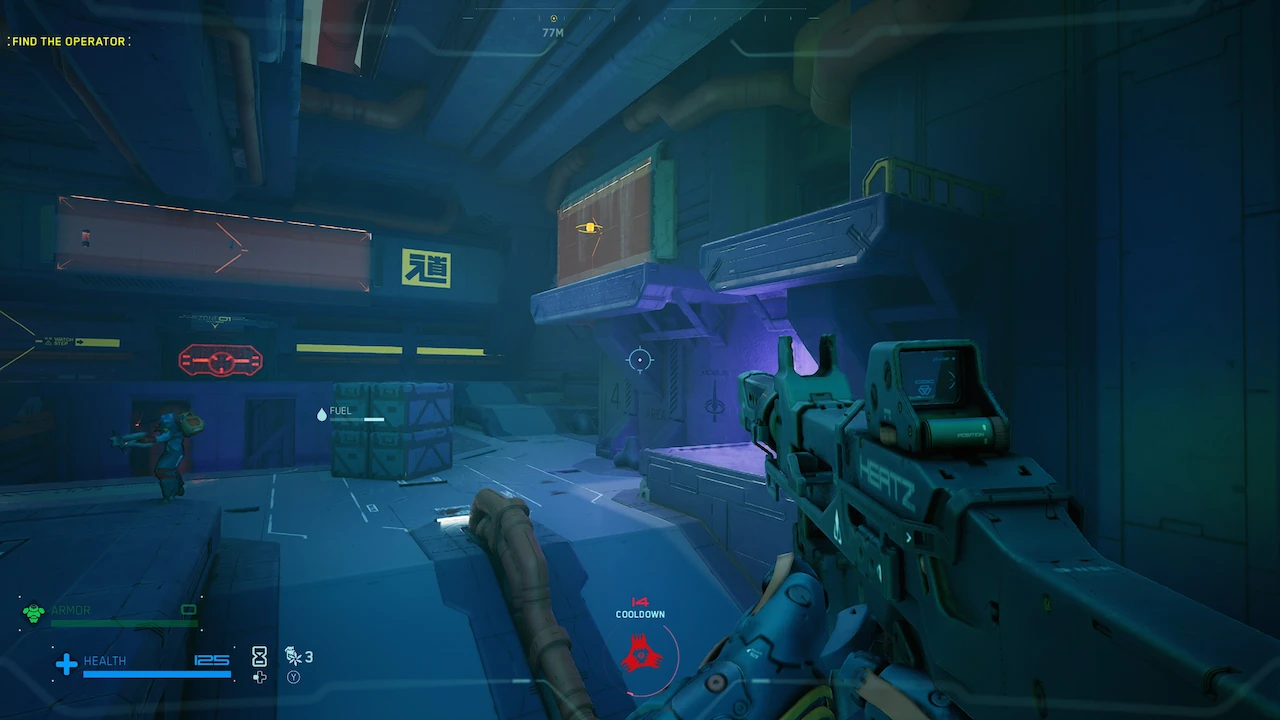
ASKA’s jumps and dodges burn fuel, adding strategy to every move in Metal Eden.
Fuel System
Fuel powers dodges, double jumps, and other evasive maneuvers. Managing it adds tactical depth; burn too much, and you’ll lose mobility when it’s needed most.
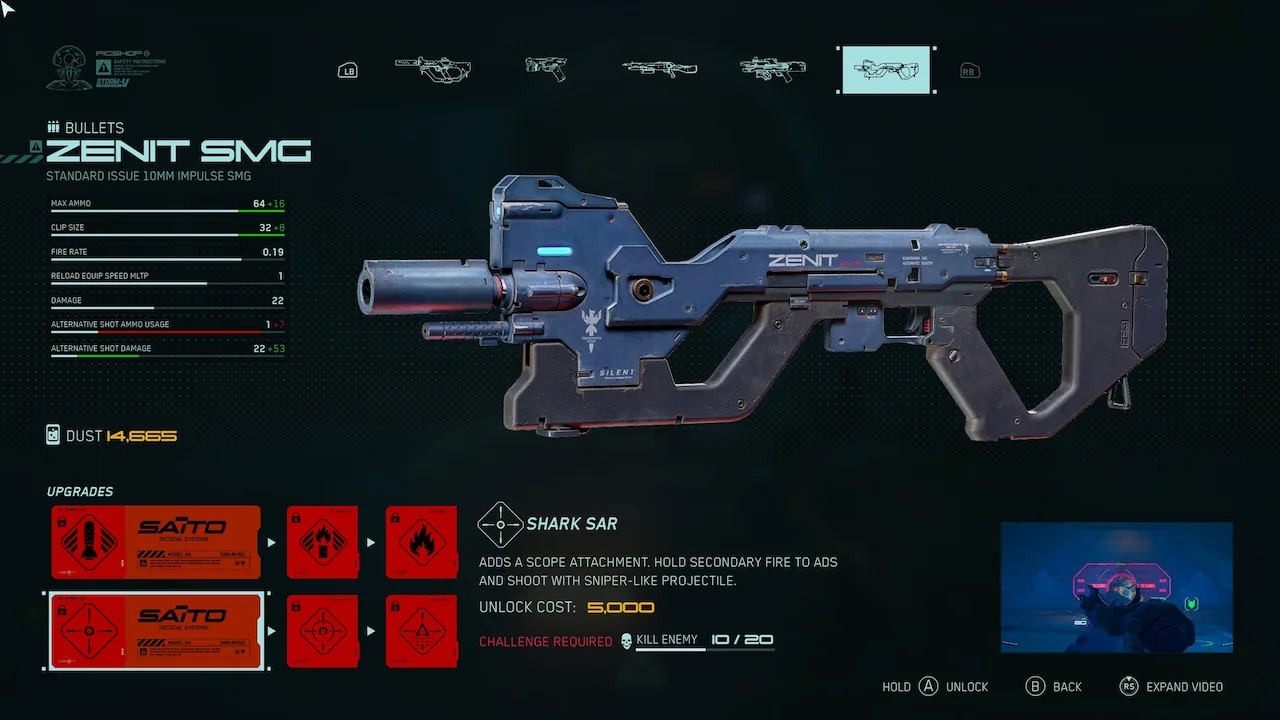
ZENIT SMG transforms with the SHARK SAR, letting ASKA snipe foes from afar.
Alternate Fire
Weapons have alternate fire modes unlocked through combat challenges. These change loadout dynamics, from chaining lightning balls to seismic attacks.
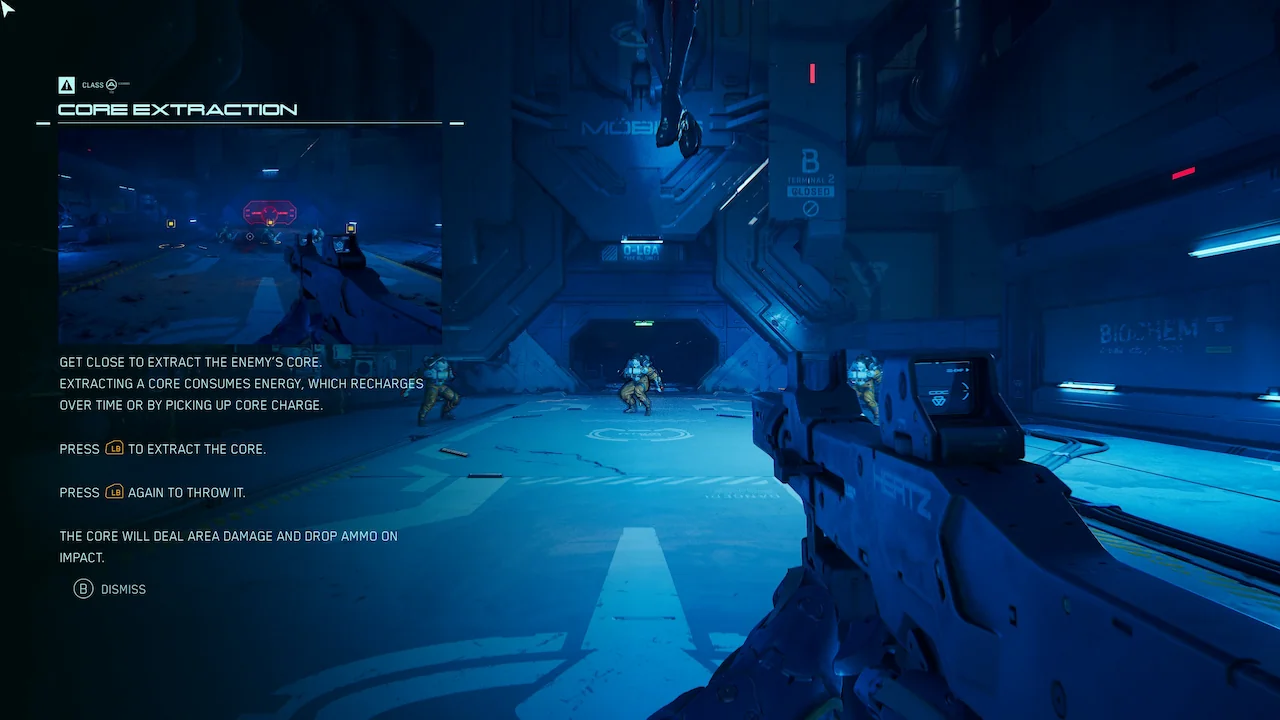
Extracted cores deal area damage and drop ammo, giving ASKA tactical options.
Cores
Rip cores from enemies for explosive throws or charged melee strikes, keeping combat frantic without Doom’s glory kill pauses.
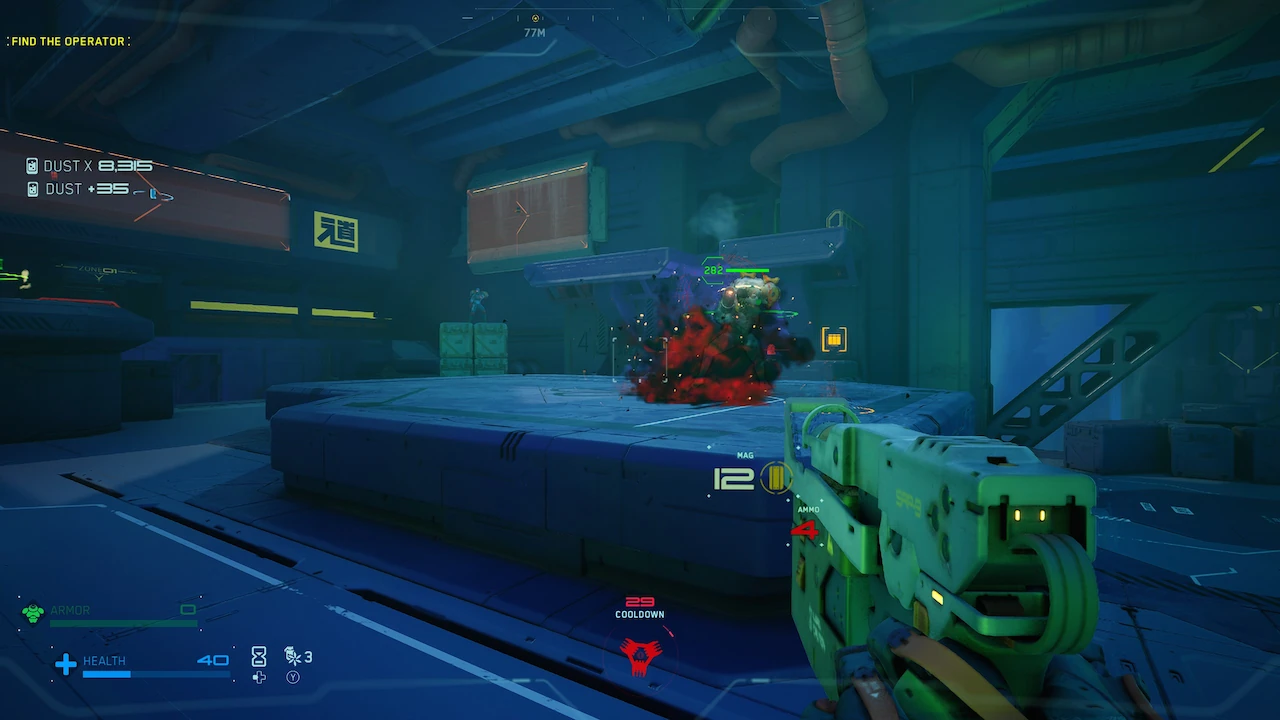
Cooldowns force you to plan when to extract cores for maximum effect.
Cooldown
Cooldowns follow melee or core extraction, forcing players to plan usage rather than spam abilities.
Voice Acting
The cast delivers strong performances that match the game’s fast pace and cyberpunk world:
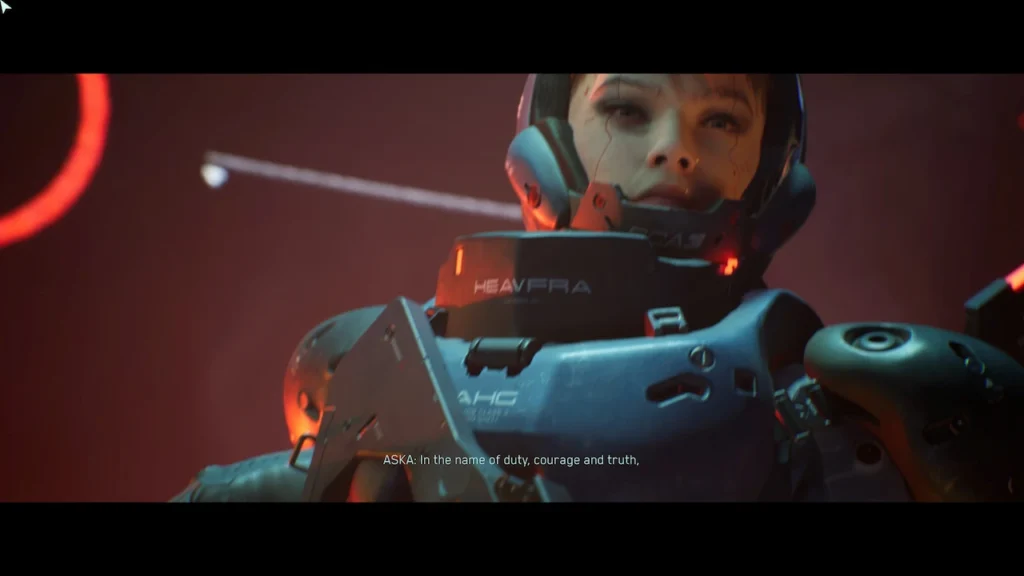
ASKA’s mantra comes alive with confident voice acting.
- Elizabeth Maxwell (ASKA): Motoko Kusanagi (Ghost In The Shell: Arise), Virginia (Unicorn Overlord), Natasha (Honkai: Star Rail)
- Keith Silverstein (Nexus, Operator): Zhongli (Genshin Impact), Vector (Sonic x Shadow Generations), Flynn (Shin Megami Tensei IV)
- David Menkin (Architect, ROVER-12): Malos (Xenoblade Chronicles 2), Luke Skywalker (Lego Star Wars: Skywalker Saga), Preston (Battlefield: Bad Company)
- Alexandra Guelff (OS, City Security): Cantarella (Wuthering Waves), Jillifunny (Another Eden: Cat Beyond Time and Space)
- Matt Yulish (Overseer): Alex Church (Terminator: Dark Fate – Defiance)
Performance
The first three chapters ran like butter on my PC, with stable framerates and no stuttering. Halfway through Chapter 4, I noticed dips here and there, though clearing my shader cache and restarting helped smooth things out. These hiccups weren’t constant but worth noting, since the game demands tight timing for movement and combat.
The fact that it only cropped up later and improved after tweaking makes me confident that Reikon’s delay was genuinely about optimization, not dodging sales competition. Performance feels solid overall, with just a few moments where the engine strains under the game’s intensity.
Metal Eden Verdict
Metal Eden delivers a shooter that feels both fun and exhilarating. From the thrill of movement and wall-running to frantic firefights testing your mastery of weapons and mechanics, it’s a pure power fantasy. The game wears its inspirations on its sleeve yet blends them smoothly, avoiding the pacing issues that drag down many modern shooters.
Sonic Mayhem and Wioleta Wnorowska heighten combat with gritty, pulse-pounding tracks and cinematic, cathartic ambience. Reikon Games’ commitment to quality is evident in their decision to delay the release and integrate fan feedback. While combat dominates, the post-human world on Moebius hints at a dark, intricate story lurking behind the chaos, adding subtle depth to the fast-paced action.
Minor drawbacks include the lack of additional modes to extend arena replayability. At $40, the game still offers a satisfying amount of content for its price. Still, Metal Eden is an easy recommendation, with a combat system nearly as frantically fun as January’s Beyond Citadel and plenty of potential for future expansions.
Metal Eden TLDR
Metal Eden (PC)
8.5
Very Strong
Summary: Metal Eden blends classic arena shooting with inventive mechanics, striking cyberpunk visuals, fast-paced combat, and pulse-pounding audio.
A must play for fans of high-mobility shooters.
Tested On
CPU: Ryzen 7 5900X | GPU: RTX 3080 Ti | RAM: 64GB DDR4 | Storage: Crucial P5 Plus NVMe SSD
OS: Windows 11 x64 | Resolution: 1440p | Settings: High/Ultra | Framerate: Uncapped
References
- Metal Eden – Aska Gameplay Trailer (YouTube)
- Behind the Mayhem – The Music of Metal Eden (YouTube)
- Metal Eden is an exhilarating mix of Doom and Ghostrunner, and my hands-on preview left me craving more – TechRadar

